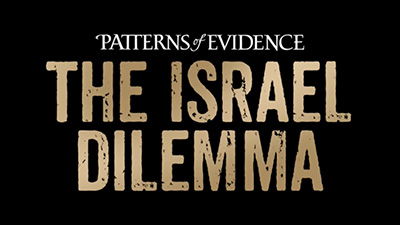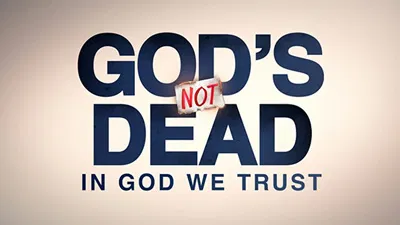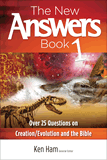Truth without Direction
A Review of The Golden Compass and His Dark Materials Trilogy
Stacia McKeever reviews both the book and the movie, Golden Compass.
Circulating emails warn Christians to stay away from it. A group on Facebook encourages a boycott. The reason given is that the Golden Compass (a book made into a movie to be released December 7) and its sequels (The Subtle Knife, The Amber Spyglass) are written by self-professed agnostic Philip Pullman in an admitted attempt to do away with “God.”1
For summary of the plot of the His Dark Materials trilogy, read this relatively good one by SparkNotes. With this review, I’ll assume that you’re familiar with the plot. Further, this review will focus primarily on the books where Pullman’s ideas shine. See below for comments on the movie.
Questioning God
Conservative columnist Rod Dreher fears what Pullman’s books could do to his children:
One expects that religious parents will keep their children away from the film.
“But why?” the question arises from liberals. “What are you afraid of?”
My children losing God, especially before they have a firm hold on Him, that’s what. At some point they will question the existence of God. I did. It’s normal to do so. I want more than anything else I want for my children, even their own happiness in this life, for them to believe in God, Who is their salvation. If you believe in God, and that the loss of God is the worst thing that can happen to a person, then you would sooner give your child a rattlesnake to play with than expose him or her at an early age to the work of a man who openly says he wishes to destroy God in the minds of his audience.2
As Solomon has so wisely said, there is nothing new under the sun (Ecclesiastes 1:9). This applies to atheism as well. Friedrich Nietzsche was not the first person to declare God dead, nor will Pullman be the last to attempt to kill God off. In fact, this was part of the temptation that Satan offered to Eve in the beginning—a world in which she could be her own god. From that time, people have attempted to do away with the Creator so that they may live as they please. More recently, the advent of evolutionary ideas that purported to explain how we got here without invoking God made it possible to be an “intellectually fulfilled atheist,” according to Richard Dawkins.
The Bible has a specific term for one who denies God’s existence: fool ( Psalm 14:1). His Dark Materials provides an excellent example of well-written foolishness. Make no mistake—Pullman is a good writer; his stories are gripping and engaging (although I’ll agree with others that the first book is the best and that he leaves several plot holes hanging wide open). His characters are intriguing. However, in his attempt to explain why the world is the way it is without invoking God, he has written foolishness.
Foolishness is not something that the prepared Christian needs to fear. Nor is it something that he needs to shelter his children from. After all, if they don’t get it from this book, they’ll certainly pick up the no-God-in-the-picture worldview promoted by cartoons, television programs, and other books, not to mention the stuff they can look at on the sides of cereal boxes, read on packets of oatmeal (“dinosaurs lived millions of years ago”), hear over the loudspeaker in grocery stores (“people have been using grains to make bread for over 10,000 years”3), or glean from their friends (even Christian friends).
As an aside, the irony, at least for me, is that many Christians are offering Enchanted as a family-friendly alternative to the Golden Compass. Although not overtly anti-God, is it not also proffering a view of the world (albeit a make-believe view) that doesn’t include God? Is this not also a-theistic? Don’t misunderstand me—I’m not suggesting that Christians only watch Christian movies and only read Christian books. However, I am saying that we need to recognize an a-theistic worldview when we see it and not simply gloss over it because the story gives a warm-fuzzy feeling and purports “good morals.” We need to be diligent in teaching our children to be discerning in whatever they are reading, watching, and studying (even those labeled Christian).
We also need to be diligent in teaching our children apologetically—explaining not only what we believe, but why and how the Bible connects to the real world. For example, we need to be sharing with our kids how they can know God exists so that when they encounter atheistic thinking, they’ll know how to respond rather than being shaken to the core of their very being by a worldview that completely contradicts their own. Resources such as Beginnings can help parents do just that.
So what’s a Christian to do with Philip Pullman and his books and movies? First, let’s respond graciously to this latest atheistic offering as a testimony to Pullman. Rather than taking offense, let’s take the offensive. Some may want to check out the books from the library and read them along with your older children. (Note: The material in his books isn’t appropriate for children under 12. Please be discerning and read ahead of your children.) Others may simply want to use the topic of the Golden Compass to discuss the following themes with their children. In addition, or if you don’t have children, use these books as topics of discussion with the unsaved around you. Compare the foolishness to the one true standard: the Bible.
There are several themes that you’ll want to key in on as you progress through the trilogy.
Pullman’s View of God
I don't know whether there's a God or not. Nobody does, no matter what they say. I think it's perfectly possible to explain how the universe came about without bringing God into it, but I don't know everything, and there may well be a God somewhere, hiding away.4
In the books, Pullman denies that “God” is the creator of all things and portrays him as the first being that came into existence—an angel which is now aged, feeble, demented, powerless, terrified, and ready to die. This is obviously not the eternal, omnipotent, self-existent God of the Bible. (Contrary to popular rumor, the protagonists Lyra and Will do not “kill” God.) The “god” that Pullman kills is simply a straw-man (or straw-god, if you will) that he easily knocks down without dealing with the real, true Creator God.
For more on inherent problems with atheism, see God & Natural Law and Atheism: An Irrational Worldview.
Pullman’s View of the Church
Even more than a polemic against God, these books are a railing against the established Church, but which Pullman refers mainly to the Roman Catholic church. Much of what he writes against is in response to the teachings of Catholicism.
Pullman explains his antipathy toward the church:
Well, all right, it comes from history. It comes from the record of the Inquisition, persecuting heretics and torturing Jews and all that sort of stuff; and it comes from the other side, too, from the Protestants burning the Catholics. It comes from the insensate pursuit of innocent and crazy old women, and from the Puritans in America burning and hanging the witches—and it comes not only from the Christian church but also from the Taliban.
Every single religion that has a monotheistic god ends up by persecuting other people and killing them because they don’t accept him. Wherever you look in history, you find that. It’s still going on.5
Throughout His Dark Materials, the characters continually refer to the evil things the Church (referred to as the “Magisterium”) has done and is doing. However, in Pullman’s world without God, this begs the question of what “evil” and “good” are. When he does away with the Authority (one of his terms for God), he does away with any basis for absolutes. Without an absolute moral lawgiver who has decreed which actions are “good” and which are “evil,” there is no logical basis upon which Pullman can defend his declaration of evil.
If, as Pullman supposes in the books (and in real life), we have evolved and are nothing more than a random collection of atoms which disperse when we die, then our thoughts and “oughts” derive from a random collection as well. My collection may tell me that one action is “right” while your collection provides the complete opposite description. Why is my collection any better than yours? As we’ve said elsewhere, those that purport a standard of morality apart from the biblical God are merely borrowing from the Judeo-Christian worldview in which there is an ultimate standard of goodness by which we can judge actions and attitudes. (For more on this, see Always Ready).
Watch as Pullman attempts to defend his position in this interview. Notice that he continues to presuppose an ultimate standard of goodness, when it suits him.
Interviewer: Throughout His Dark Materials there’s a strong sense of ‘ought’. All the most attractive characters—Lyra and Will, Lee Scoresby, Iorek Byrnison, Mary Malone—are driven in the end by a sense of duty, at least to their loved ones if not to the world. Where in a world without God does that sense of ‘ought’ come from?
Pullman: I’m amazed by the gall of Christians. You think that nobody can possibly be decent unless they’ve got the idea from God or something. Absolute [expletive deleted] rubbish! Isn’t it your experience that there are plenty of people in the world who don’t believe who are very good, decent people?
Interviewer: Yes. I’m just curious to know where it comes from.
Pullman: For goodness’ sake! It comes from ordinary human decency. It comes from accumulated human wisdom—which includes the wisdom of such figures as Jesus Christ. Jesus, like many of the founders of great religions, was a moral genius, and he set out a number of things very clearly in the Gospels which if we all lived by them we’d all do much better. What a pity the Church doesn’t listen to him!
Interviewer: Yes, absolutely. How, by the way, do you react to his statement ‘Unless you become like children, you will never enter the kingdom of heaven’?
Pullman: He wasn’t right all the time.6
In his books, Pullman attempts to play fast and loose with the ideas of “good” and “evil,” constantly keeping the reader guessing by changing how we view the characters—one minute Mrs. Coulter is “evil,” the next minute she’s “good.” Again, however, this presupposes an ultimate definition of what good and evil are. As you read his books, watch for the way he inverts these concepts. This verse came to mind as I read the trilogy: Woe to those who call evil good, and good evil (Isaiah 5:20).
To return to Pullman’s charges of Church evil (charges which are baseless in a world without an ultimate Lawgiver), we might point out that any atrocities committed by an establishment or individuals in the “name of Christ” are inconsistent with what Christ and the Bible taught. Compare this, however, to the murderous actions of those who accept evolutionary ideas and act consistently: see Morality.
Pullman’s View of Truth
Of course, this brings us to one of the major threads of the storyline: Lyra’s alethiometer—the truth-teller—the Golden Compass. Whenever Lyra consults the alethiometer, it tells her the truth about whatever she’s asked. The Dust (later discovered to be the “totality of human wisdom and experience”7) guides the alethiometer and provides the true answer.
Even in his world without God, Pullman clings to the idea of “truth.” Yet what is truth apart from One who is True and provides us with the definition of truth? How can we be sure that human wisdom and experience always provide the true answer to any question? Apart from the Bible, how can we determine what is true and what is false? Once again, he’s borrowing concepts from the Judeo-Christian worldview. Pullman’s elimination of God also eliminates his basis for truth.
Further, the concept of truth is immaterial. In the materialist (matter-only) universe (or multiverses, as Pullman posits), there is no allowance for the immaterial. Matter cannot give rise to the immaterial. Dust is Pullman’s way of skirting this issue, yet even Dust is something that can be seen, so is material.
Pullman’s View on Genesis
Philip Pullman openly admits that John Milton’s Paradise Lost was an inspiration for him. However, Pullman’s retelling of the Genesis account, woven through the trilogy, is completely upside down.
I’m just as interested in the Creation story as the fundamentalists are, but in the part played by the tempter, who leads us to the kingdom of good and evil, which is wisdom, as an act of kindness towards those beings who had been kept as prisoners by the authority.8
Underlying the trilogy there is a myth of creation and rebellion, of development and strife, and so on. . . . So, for instance, the book depicts the Temptation and Fall not as the source of all woe and misery, as in traditional Christian teaching, but as the beginning of true human freedom something to be celebrated, not lamented. And the Tempter is not an evil being like Satan, prompted by malice and envy, but a figure who might stand for Wisdom.9
The theme of the whole thing, after all, is the ending of innocence and the beginning of wisdom; and that is summed up in the third chapter of the Book of Genesis, which is the origin of this and Paradise Lost and many other stories, in the story of Adam and Eve. Lyra is Eve; Mary Malone is the serpent, who teaches her how to fall in love, and Will is Adam.10
Again, Pullman seems to be knocking down another false idea about what biblical Christianity teaches: the “original sin” was sex between Adam and Eve. With Lyra and Will participating in another “fall”—this time into grace, rather than from grace—he attempts to show that “love” is a beautiful thing which liberates us from our childhood and is the beginning of our path toward wisdom (this happens in the third book, The Amber Spyglass). However, this view on the original sin couldn’t be further from the truth.
God blessed Adam and Eve in the beginning and told them to be fruitful and multiply. This happened before they rebelled—it wasn’t the rebellion itself. The first sin occurred when they ate from the tree they were commanded to not eat from—this had nothing to do with sex.
Additionally, Pullman continually refers to the “myth” of the Genesis account, which we all know is an account of actual history.
Pullman’s View on Evolution
Throughout each book in the trilogy, the idea of molecules-to-man evolution is the accepted explanation as the way things came to be, with Dust being the guiding force. We’ve discussed the problems with particles-to-people many times before (see Information Theory, Speciation, Natural Selection, Mutations), so there’s no need to go into detail here. It is interesting that Pullman invokes some sort of "force" to drive evolution, as if even he can see that naturalism is flawed.
Sadly, as we’ve pointed out in the past, it was evolutionary ideas that planted seeds of doubt in Pullman’s mind about the biblical narrative and the salvation message based on the history found in Genesis. Although he grew up under the tutelage of his kindly clergy-grandfather (his father was killed in an uprising in Kenya), he drifted away when he learned about Darwinian evolution, which he wrongly equates with “Science.”
The Christian story gives us human beings a very important and prominent part. We are the ones who Jesus came to redeem from the consequences of sin, which our parents—you know. It is a very dramatic story and we are right at the heart of it, and a great deal depends on what we decide. This is an exciting position to be in, but unfortunately it doesn’t gel at all with the more convincing account that is given by Darwinian evolution—and the scientific account is far more persuasive intellectually. Far more persuasive.
. . . It was the usual questioning that takes place in adolescence. It began to seem impossible to reconcile the creation story with the scientific account. It became increasingly implausible that life continued after the body died. The claims of some religions—the assumption of the Virgin Mary into heaven, the infallibility of the Pope—seemed to me such howling nonsense . . . .11
Parents, this is another example of why it is so important to teach your children how the Bible connects to the real world—that science has not overturned the biblical account, but supports and affirms it. As you’ve hopefully gleaned from this review, we also need to be open with our children about what others teach and how these false ideas don’t line up with the Bible says.
Conclusion
There’s much more to analyze about Pullman’s diatribe against “God” and organized religion (for instance, his annihilistic view on death, his attempt to find meaning in life apart from God, his mention of the big bang, his view on homosexual behavior), but I’ll stop with what has already been written.
I trust I’ve shown that for the informed Christian, the Golden Compass, Subtle Knife, and Amber Spyglass offer nothing new or challenging to a robust Christian faith. Rather than play into Pullman’s idea that church shuts down whatever it doesn’t understand, let’s meet his challenge head-on, showing that there are rational, logical answers to the ideas he propagates. If we’re developing a truly biblical worldview in our children, training them apologetically, and crying out to the Lord to extend His mercy and grace in their lives, we needn’t be afraid of what a foolish book will do to them.
If you don’t want to support Pullman financially by purchasing his books, then check them out from your library or borrow them from a friend. Read them and be prepared to discuss them with your non-Christian friends. Use them for good, rather than for evil (in the true sense of those definitions)—Genesis 50:20—as a springboard for conversations leading to evangelism. (Although please don’t misinterpret these suggestions as my advocating all Christians must read the books and watch the movie—that’s an individual choice for you to make.)
Let’s be informed about what we’re up against, rather than cowering in a corner. We are the ones that have truth, and we have been given direction in the Word of God.
A Note on the Movie
As with all books-turned-movie, the Golden Compass movie is different from the book. It’s well done, with great CGI and a storyline that progresses much faster than the book’s. The plotline is a bit different and the movie stops short of including the last few chapters found in the book. In my husband’s opinion (he hasn’t read the books), the movie was “pointless” and “lacked any coherence.” And he mentioned that, for him, the message of the movie was that we need to be free to do what we want, without being subject to any authority.
The concern by many Christians is that the movie will cause children to want to read the book, which will in turn indoctrinate them into atheism. Will children want to read the book after watching the movie? Perhaps. Keep in mind, however, that the messages Pullman advocates aren’t much different from what the children will get from other places. I’m not suggesting these messages won’t influence a child’s worldview, but I am perplexed about the sudden uproar over this particular venue (as opposed to, say, more “harmless” purveyors of no-God-in-the-picture worldviews such as Dora the Explorer, Sesame Street, Disney’s fantasy worlds, Land Before Time, etc.).
Again, I’d suggest taking the offensive, rather than the offense, by reaching as many of these impressionables as you can with the truth of the Bible, showing them where Pullman is wrong and where the Bible is right. Let’s provide them with the truth based on the direction found in God’s Word.
Footnotes
- Steve Meacham, “The Shed Where God Died,” Sydney Morning Herald, December 13, 2003.
- Rod Dreher, Beliefnet.com, http://blog.beliefnet.com/crunchycon/2007/10/my-books-are-about-killing-god.html.
- This was overheard by a coworker while he was shopping for groceries with his family.
- Philip Pullman, “Questions & Answers.”
- “Heat and Dust,” Third Way.
- “Heat and Dust,” Third Way.
- Steve Meacham, “The Shed Where God Died,” Sydney Morning Herald, December 13, 2003.
- Ed Vulliamy, “Author Puts Bible Belt to the Test,” The Observer, August 26, 2001.
- Philip Pullman Q&A, Random House.
- Interview with Philip Pullman, KidsReads.com.
- “Heat and Dust,” Third Way.
Recommended Resources

Answers in Genesis is an apologetics ministry, dedicated to helping Christians defend their faith and proclaim the good news of Jesus Christ.
- Customer Service 800.778.3390
- © 2025 Answers in Genesis







